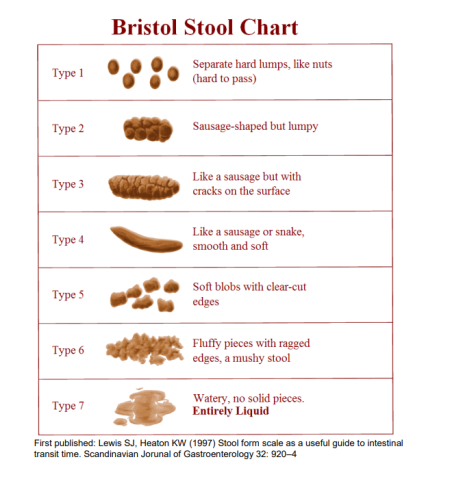Introduction
Your child has constipation. It is a medical problem that needs treating properly to stop it getting worse. Constipation won’t go away by itself. This leaflet will guide you through the signs and symptoms of constipation and how you can care for your child at home. If you have any questions or if there is anything you do not understand about this leaflet, please contact:
Children’s Assessment Unit on 02476 865 631
George Eliot Hospital NHS Trust switchboard number: 02476 351 351
What is Constipation?
Constipation is a problem for 1 in 3 children. It commonly starts around the potty-training stage and can also affect babies. Constipation can happen when a child does not pass a bowel movement (stool) often enough, or does not empty their bowels properly, even if they empty their bowels every day. This can cause hard and dry faeces to build up and it may cause them to feel pain when they do go to the toilet.
When constipation is not resolved this can cause something called faecal impaction, where faeces build up in the rectum and causes the child to have a large often painful bowel movement. This can also lead to them soiling their clothes.
What are the signs and symptoms of constipation?
- Fewer bowel movements than normal (children should pass some soft poo every day, or at least every other day.)
- Pain and straining when passing stools. There may even be some bleeding when they poo or afterwards. Hard, large poos can cause an ‘anal fissure’ or small tear in the bottom.
- Tummy ache
- Small, dry hard stools and a sore bottom
- Feeling like a bowel movement is not finished
- Leaking of liquid or loose stools.
What Causes Constipation?
There are many different causes of constipation in children. Some children can develop constipation after being unwell and not eating or drinking. Poor diet and not eating enough fibre can also contribute.
A painful experience of pushing or straining dry hard stools can make your child more scared to empty their bowels and begin to avoid the toilet by tightening their muscles around the anus and putting off the urge to have a bowel movement. This is not your child’s fault. Parents should try their best to start good habits that can help to reduce and hopefully prevent constipation in the future.
Other causes may include:
- Not enough exercise. As part of ongoing treatment support your child to take part in daily physical activity that they enjoy. For very young children, this can just be running around and playing.
- Changes in daily routine.
- Family history of constipation.
- Certain medicines that you child may be prescribed.
What can I do to solve and prevent my child from having constipation?
- Make going to the toilet fun by offering treats/rewards. Reward plans such as star charts can help your child get into the habit of going to the toilet. They are only useful if your child can do what is being asked of them. Involve your child in setting the goals and rewards that matter most to them. Before setting up a reward plan for using the potty or toilet it is important that your child takes their medicine in the right way. This will help them to poo more easily.
- Increase fibre in your child’s diet. Include foods such as wholegrain cereals, wholemeal breads, fruit and vegetables, dried fruit with skin on. For babies try pureed fruit and vegetables.
- Increase fluid intake. (Aim for 6-8 glasses of water or juice a day. Approximately 1 litre)
Does your child need any medication?
Sometimes children can have constipation for a long time, but there is no need to worry as there are medications and treatments that can help. Your doctor may prescribe some laxative medication, such as Movicol sachets or lactulose. This can help by softening the stools or keeping the bowel moving to make it easier for your child to pass stools. These can take several months to work before your child’s bowels return to normal.
When to seek advice from a health care professional?
If your child’s constipation gets worse and they start to feel sick, have stomach pains, stop eating or drinking and become irritable; or if they are soiling their clothes, it is advisable to contact your GP to investigate any medical causes.

George Eliot Hospital is a smoke free environment. For help and advice to stop smoking you can call the national helpline on 0300 123 1044 or visit https://
Copyright
Except where otherwise noted, this item is licensed under the CC BY license (https://
If you are a rights holder and are concerned that you have found material on our patient information resources website, for which you have not given permission, or is not covered by a limitation or exception in national law, please contact us using the Feedback form providing your contact information and full details of the material.